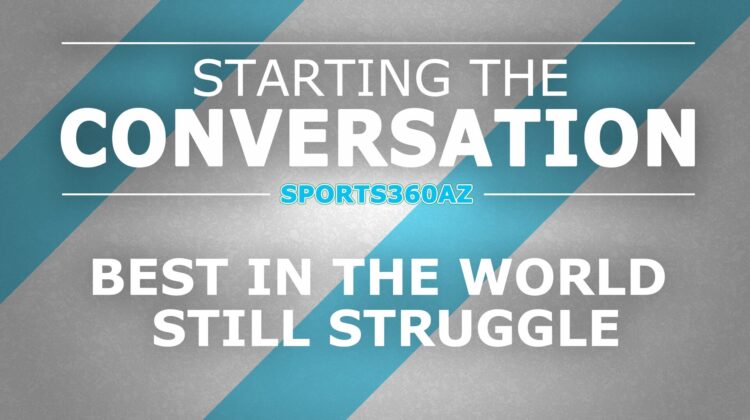Like many of you, I spent plenty of time the last few weeks watching the Paris Olympics.
It’s fascinating to see the best athletes from most corners of the world compete for the ultimate bragging rights: a gold medal.
Of course, we see who the winners and losers are in each competition. We don’t see the three years of training prior, or really a whole lifetime of training, that leads them to that moment.
However, even the best in the world have overcome one of the greatest obstacles in life: mental health struggles.
The Olympic committees have been trying to combat the rise in mental health struggles among it athletes. A 2019 study found that 34% of elite athletes reported symptoms of anxiety and depression.
That number appears staggering on the surface. But let’s look deeper.
How many of you know that most Olympic athletes have to self-fund their trip? I learned that when helping Claudia Collins film a documentary about local Arizona skater Paige Heyn, who just competed in Paris. Skaters get a small stipend from Team USA, but it’s not even enough to cover training costs.
Imagine that. People see the success of someone on a national stage, and assume that money is just rolling in. That may be true for the biggest names through endorsements or for athletes on the men’s basketball team, but not for everyone. Many of the winners are coming back to their country, wondering how they’re going to afford rent next month. And even more of the athletes who struggled in the Olympics are wondering the same thing.
It’s a life-long dedication (for a certain time), that doesn’t have equal dividends. No wonder anxiety and symptoms of depression kick in for many. Especially when the success doesn’t come to justify the struggle internally.
What to do about it
I don’t know if this was the case for every country and athlete, but the IOC did hire Kevin Smith, the former NBA head psychologist, and his team to offer 24/7 access to assess athletes’ mental health in the Olympic Village.
That’s important.
Every sport, every team, should have access to people like Smith and his team to talk to. Not everyone understands what it’s like to feel depressed right before, during, or after the biggest moment of your life so far.
Having conversations matter. Simone Biles is one of the best examples of that.




